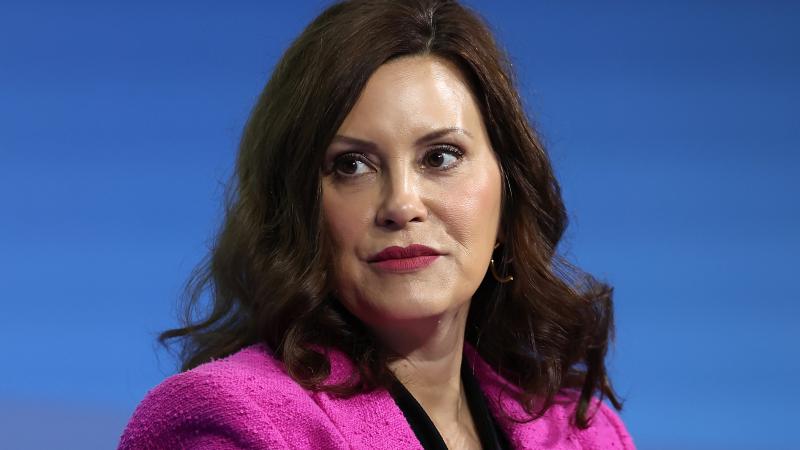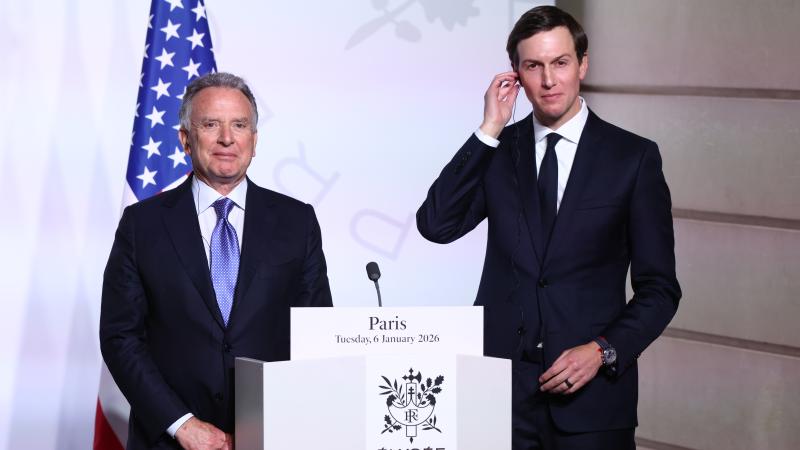Biden attempts to take credit for NATO defense spending successes pushed by Trump
Prior to Trump's first term only three NATO member nations were meeting the contribution target, though six reached the benchmark by the end of the term.
Donald Trump as president pushed for members of the North Atlantic Treaty Organization to increase their defense spending to 2% of their total Gross Domestic Product as a central part of his foreign policy platform, but now President Joe Biden appears to be trying to take credit.
Members of the alliance initially agreed to the 2% spending increase during former President Barack Obama's presidency in 2014, but most members were not expected to reach the threshold by the 2024 deadline.
Prior to Trump's first term – from Jan. 20, 2017 to Jan. 20, 2021 – only three countries were meeting the target, though six reached the benchmark by the end of Trump's term.
Now more than two-thirds of the alliance's 32 members are expected to reach the target by the end of the year, and Canada outlined its plans Friday to increase defense spending to 2% by 2032.
Biden lauded the recent momentum at NATO's annual summit in Washington, D.C., last week and appeared to take credit.
“In the year 2020, the year I was elected president, only nine NATO allies were spending 2% of their GDP on defense,” he said. “This year, 23 will spend at least 2 percent. And some will spend more than that.”
New outlets such as the New York Times and Washington Post, which previously panned Trump for adding pressure on the alliance, have since in opinion pieces indicated that the demand for Europe to shoulder more of its own defense responsibilities was correct.
Although there is a surge in countries reaching the target, Trump supporters and even NATO's leader, at least in part, say the momentum began under the former president, who's now running for reelection.
Former Trump National Security Council chief of staff Fred Fleitz said he was disappointed in Biden's NATO speech and argued Trump was not getting the credit he deserves.
"Trump put the pressure on that got a record number of NATO members to pay the 2% of GDP that they're required to pay as part of their treaty arrangement," Fleitz said on a recent "John Solomon Reports" podcast.
"It is ironic now to see Biden taking credit for this, these members are meeting their commitment because Trump started this, and [because] I think they realized that after Russia invaded Ukraine that they had to stop neglecting NATO and meet their fair share."
The money is for each country's own defense but is meant to help ensure the alliance's military readiness. The countries also promised that of the defense expenditures at least 20% of it will be spent on new equipment.
Fleitz also says Trump, if reelected president in November, will have his "work cut out for him" when it comes to NATO because some countries are attempting to "Trump-proof" the alliance.
Robert Greenway, a former Trump adviser and the director of the Allison Center for National Security at the conservative-minded Heritage Foundation, also says his former boss is not getting the credit he deserved for pressuring countries to up their defense spending.
"There had been no success until President Trump made it a central issue, and at that point in time, in combination with [NATO Secretary General] Jens Stoltenberg ... [they] made tremendous success," Greenway said on the "Just The News, No Noise" television show. "And this was before the largest land war in Europe had started again."
Stoltenberg has credited a portion of the rise in NATO defense spending to Trump, claiming that the former president's efforts have helped member nations add more than $130 billion to the alliance's defense fund.
“President Trump has been very clear,” Stoltenberg told Fox News in 2019. “He is committed to NATO. ... But at the same time, he has clearly stated that NATO allies need to invest more. And therefore at the summit in July last year, we agreed to do more to step up – and now we see the results ... . We see that the clear message from President Donald Trump is having an impact.”
Others say the motivation for the NATO members to meet their obligation was because of increased Russian aggression, including its war on Ukraine and the fear of where Russia President Vladimir Putin might go next – not Trump or Biden's efforts.
“If you look at the year-on-year data, the turning point away from the nadir of European defense spending happened in 2014, pre-Trump, and clearly due to Crimea,” Erwan Lagadec, a scholar at George Washington University’s Elliott School of International Affairs, told CNN, and that the even bigger surge in NATO spending in 2023 was “clearly in reaction to the full-fledged invasion of Ukraine."
Another scholar, Stephen Saldeman, told the news outlet, “Putin deserves most of the credit for defense spending increases in Europe," because of the 2014 and 2022 attacks on Ukraine.
“Everyone was cutting their defense budgets after the 2008 economic crisis and as countries started pulling out of Afghanistan, and all that changed with the seizure of Crimea," he also said.
The 2% contributions are notably less than the 3.5% that the United States normally contributes.
Poland spends the highest amount of its GDP on defense, with 4.12% of its GDP going to defense in 2024, according to Forces.net. Estonia is expected to spend the second highest on defense in 2024, with 3.43%, and the United States is third, with 3.38%.
The countries that are not projected to hit the 2% benchmark this year are Belgium, Canada, Croatia, Italy, Luxembourg, Portugal, Slovenia and Spain, according to the news outlet.















